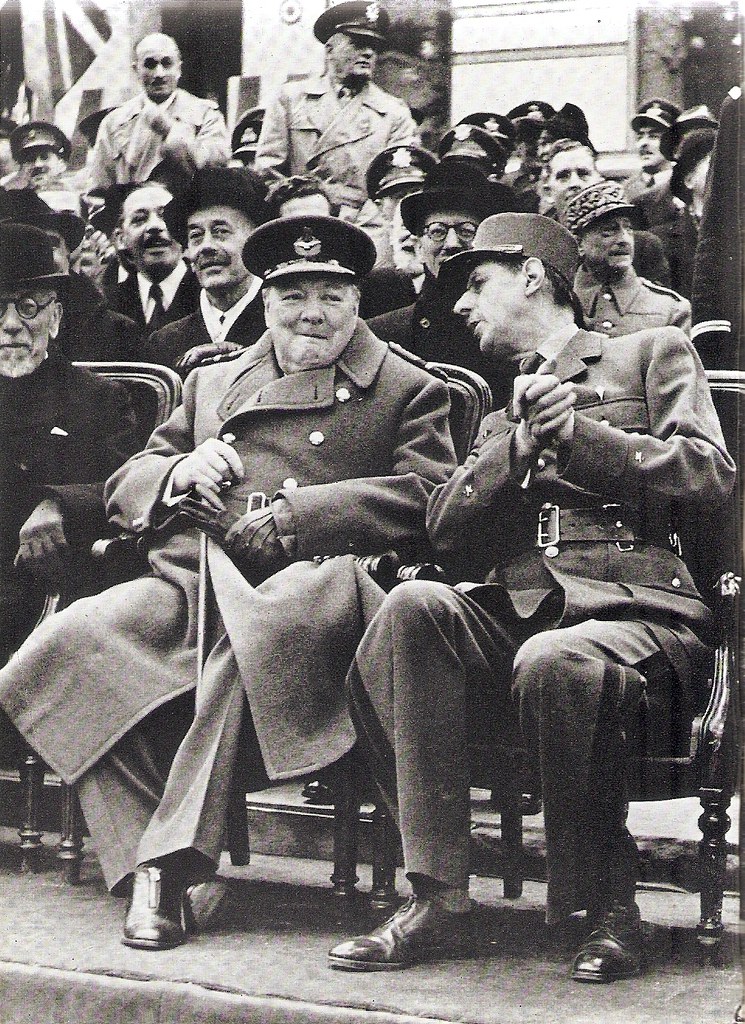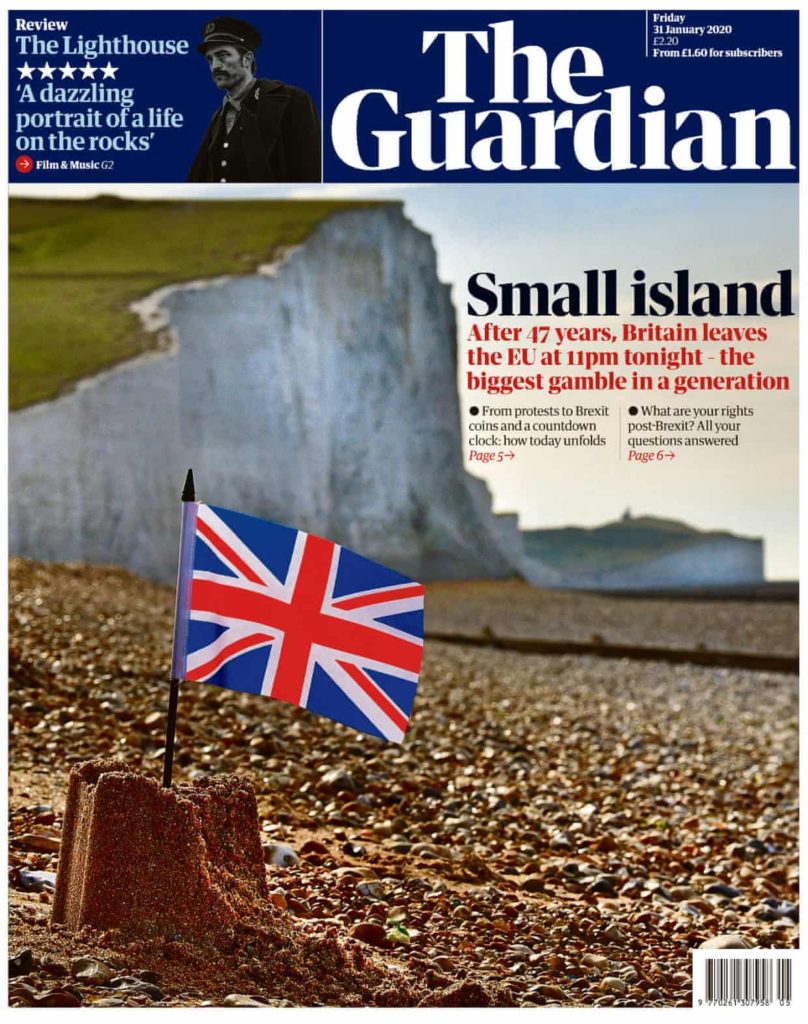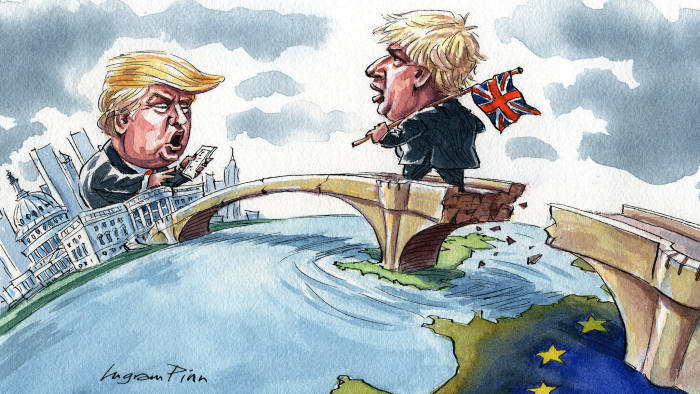Brexit: Farewell United Kingdom
MEPs sing the ‘Auld lang syne’ after the European Parliament voted on January 29th in favour of ratifying the Brexit deal.
Brexit Day finally happened. On this day of January 31, 2020 the United Kingdom is officially out the European Union. After nearly 50 years of union, a country that twice liberated Europe during the war is now sailing alone. With grief and regrets, the author of this post bid farewell to the United Kingdom.
The United Kingdom has always had a divisive and emotive relationship with Europe. In 1951, Britain declined an invitation to join the six founding nations of the European Economic Community (“EEC”) in signing the Treaty of Rome in 1957. Frenchman Jean Monnet never understood why the British did not join. He came to the conclusion that “it must have been because it was the price of victory – the illusion that you could maintain what you had, without change.”
In 1961, the UK changed its mind and applied to join the EEC, only to be vetoed twice by French President Charles de Gaulle over “deep-seated hostility” towards European construction.

1979: “I want my money back!” – Margaret Thatcher
In 1973, the United Kingdom is in! The Guardian reported “Britain passed peacefully into Europe at midnight last night without any special celebrations.It was difficult to tell that anything of importance had occurred.”
The truth is: the U.K. was skeptical of the EU before it even existed but in these differences lies our legacy. That is who we are. Difference of opinion leads to inquiry and inquiry to truth, it also leads to creative solutions. Like a family, we have a duty to promote the best of times and keep the worst of times at bay. Yet again, on this Brexit Day, there would be tears and celebrations all over the UK.
What now?

Britain leaves the EU after more than three years of tortuous negotiations. ‘Remainers’ will host sad dinner parties, while ‘leavers’ will celebrate in Parliament Square. Now what happens? The UK enters a transition period until the end of December that is meant to give citizens and businesses time to adapt. During this transition, Britain will continue to apply EU laws but will no longer be represented in EU institutions.
It remains that tensions will happen, especially on how to implement Brexit, notably when it comes to the Irish border. While the EU will continue “firmly defending the the union”, said Michel Barnier, the EU’s chief Brexit negotiator, the United Kington will face deep internal divisions over Scottish independence and Northern Ireland.
“The process of recreating ourselves is even more challenging than withdrawal” — Senior U.K. government minister
Beyond unity, what the UK also loose is influence. British politicians now have to watch through EU windows decisions that will affect them. The EU still has 450m people and produce 18% of world output.
On economics, Downing Street announced that the UK gross domestic product (“GDP”) per head is likely to be about 5 per cent smaller than it would otherwise be, over the long term. It is possible that in the end the UK will lose close to half of its potential increase in GDP per head over the next decade.
On the other hand, polls show that the majority of EU citizens still strongly support the Union. But despite a £39bn divorce bill already partially paid by the UK, the EU will also face its own issues. In a time of international disorder and protectionism, it is abundantly clear that the EU needs more than ever to be able to resolutely face the big global challenges.
And tomorrow?

© Ingram Pinn/Financial Times
Brexit Britain can’t rely on the US
To make up for its loss, the UK has long looked toward the US to reach a new trade deal. But ‘Global Britain’ and ‘America first’ always sat uneasily together. The road to striking a deal with the US is treacherous. After swallowing all the US demands, the UK government will have spent a lot of political capital. And not just at home: accepting these concessions will make any future arrangement with Europe very difficult.
Fractured EU Faces New Challenges
As EU countries begin fractious debates over the bloc’s next multiyear budget, many governments are internally divided or unable to sustain parliamentary majorities, further complicating efforts to maintain unity. “We are in a world of powers,” Mr. Macron said in October. “We need to strengthen integration.”
Britain Has to Redefine Ties With EU
Both sides have agreed to seek a “zero-tariff, zero-quota” accord based on Britain adhering to many EU labor, environmental and other standards. Europe has also said it is open to Britain joining some of its new projects aimed at building a more robust EU defense industry though it is likely that Britain will lose real-time access to some of the main European bodies. All of this, of course, is dependent on the decisions that the UK will take post-Brexit.
The end

“The tragedy for British politics — for Britain — has been that politicians of both parties have consistently failed, not just in the 1950s but on up to the present day, to appreciate the emerging reality of European integration. And in doing so they have failed Britain’s interests.” –Tony Blair
What else is left to say? When Britain left Hong Kong in 1997, there was no blood but in both case deep societal rifts and political misstep combined to economic harm left deep scars. Most importantly? It is hard to stuff the genie back in the bottle.
Tomorrow, 73 British MEPs will return to London and the UK flags fluttering in front of the European Parliament, Commission and Council will be lowered to be then displayed in the House of European history museum.
Is Brexit already past history? After obscuring much of the European agenda, it is now time to move forward. Brexit is a triumph of European solidarity and has been a wake-up call about the value of integration. Will that continue?
Truth be told, I feel deeply hurt that Britain decided to leave. But we’re not going away. As we say, “it’s not goodbye, it’s au revoir.”
The opinions expressed in this publication are those of the authors. Click here for more posts on Brexit.
Brexit: United Kingdom EU
Brexit: United Kingdom EU
Brexit: United Kingdom EU




